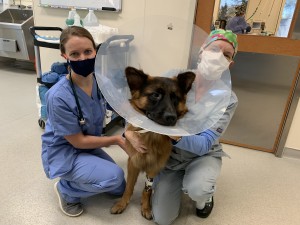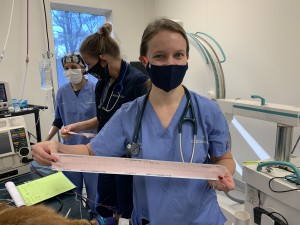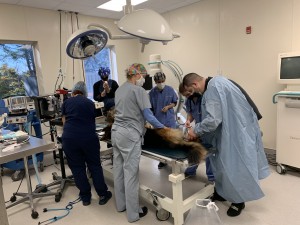-
Recent Posts
Archives
- October 2022
- August 2022
- May 2022
- March 2022
- January 2022
- December 2021
- September 2021
- July 2021
- June 2021
- May 2021
- April 2021
- February 2021
- January 2021
- November 2020
- October 2020
- September 2020
- June 2020
- April 2020
- March 2020
- February 2020
- January 2020
- December 2019
- November 2019
- October 2019
- September 2019
- June 2019
- March 2019
- February 2019
- January 2019
- December 2018
- November 2018
- October 2018
- August 2018
- July 2018
- June 2018
- May 2018
- April 2018
- March 2018
- February 2018
- January 2018
- December 2017
- November 2017
- October 2017
- September 2017
- August 2017
- July 2017
- June 2017
- May 2017
- April 2017
- March 2017
- February 2017
- January 2017
- December 2016
- November 2016
- August 2016
- July 2016
- June 2016
- May 2016
- April 2016
- March 2016
- February 2016
- January 2016
- December 2015
- November 2015
- October 2015
- September 2015
- August 2015
- July 2015
- June 2015
- May 2015
- April 2015
- March 2015
- December 2014
- June 2014
- May 2014
- April 2014
- November 2013
- September 2013
- August 2013
- July 2013
- June 2013
- May 2013
- March 2013
- January 2013
- November 2012
- October 2012
- July 2012
- December 2011
- November 2011
- October 2011
- September 2011
- August 2011
- July 2011
- June 2011
- May 2011
- April 2011
- March 2011
- February 2011
- January 2011
- December 2010
- November 2010
Categories
Cool Case: Bruno
 Bruno is a one-year-old, male, intact German Shepherd. He was seen by his primary care veterinarian for hind limb lameness. On physical examination, the veterinarian heard an irregular heartbeat and referred Bruno to NorthStar VETS. He was seen in September and diagnosed with lone atrial fibrillation. Atrial fibrillation typically causes an irregular and rapid heart rhythm due to chaotic electrical signals in the upper chambers of the heart (the atria). In small animal patients, atrial fibrillation usually develops due to significant underlying heart disease. Lone atrial fibrillation, on the other hand, refers to atrial fibrillation with a relatively normal heart rate and no underlying heart disease. Lone atrial fibrillation is most commonly seen in large and giant breed dogs (as well as horses) because a relatively large heart size is required to initiate and sustain this type of heart rhythm.
Bruno is a one-year-old, male, intact German Shepherd. He was seen by his primary care veterinarian for hind limb lameness. On physical examination, the veterinarian heard an irregular heartbeat and referred Bruno to NorthStar VETS. He was seen in September and diagnosed with lone atrial fibrillation. Atrial fibrillation typically causes an irregular and rapid heart rhythm due to chaotic electrical signals in the upper chambers of the heart (the atria). In small animal patients, atrial fibrillation usually develops due to significant underlying heart disease. Lone atrial fibrillation, on the other hand, refers to atrial fibrillation with a relatively normal heart rate and no underlying heart disease. Lone atrial fibrillation is most commonly seen in large and giant breed dogs (as well as horses) because a relatively large heart size is required to initiate and sustain this type of heart rhythm.
 Bruno was not symptomatic for atrial fibrillation at the time of presentation. He was active, energetic, and seemed totally normal to his family. However, the long-term consequences of atrial fibrillation remain unknown. Atrial fibrillation, which causes loss of coordinated contraction between the upper (atria) and lower (ventricles) chambers of the heart, leads to sub-optimal cardiac performance and could negatively affect the heart’s structure and function over time.
Bruno was not symptomatic for atrial fibrillation at the time of presentation. He was active, energetic, and seemed totally normal to his family. However, the long-term consequences of atrial fibrillation remain unknown. Atrial fibrillation, which causes loss of coordinated contraction between the upper (atria) and lower (ventricles) chambers of the heart, leads to sub-optimal cardiac performance and could negatively affect the heart’s structure and function over time.
The team at NorthStar VETS opted for electrical cardioversion of atrial fibrillation. Delivery of an electrical current to the entire heart via patches placed on either side of the chest helps to break the irregular heart rhythm and allows the heart’s own pacemaker (the sinus node) to resume control of the heart rate and rhythm. Dr. Alexandra Crooks of the Cardiology team worked closely with Dr. Urshulaa Dholakia of the Anesthesia service to come up with an anesthetic protocol. Dr. Steven Berkowitz of the Critical Care team gathered all of the supplies and medications they might need in the event of a complication (mostly worsening arrhythmias immediately after the shock). In the end, a single shock of 50 joules was enough to successfully convert him from atrial fibrillation to sinus rhythm. Bruno recovered well from the procedure and went home later the same day.
 Bruno will continue to be monitored to make sure he stays in sinus rhythm for as long as possible. He may be at risk of going back into atrial fibrillation at some point in the future. He is on an anti-arrhythmic medication called amiodarone, which should delay and/or minimize that risk as much as possible. He will be back in two months to reassess his heart rhythm using echocardiogram (ECG).
Bruno will continue to be monitored to make sure he stays in sinus rhythm for as long as possible. He may be at risk of going back into atrial fibrillation at some point in the future. He is on an anti-arrhythmic medication called amiodarone, which should delay and/or minimize that risk as much as possible. He will be back in two months to reassess his heart rhythm using echocardiogram (ECG).
Learn more about the Cardiology service at NorthStar VETS.
Alexandra Crooks, VMD (Practice Limited to Cardiology)
 Dr. Alexandra Crooks was born and raised in Philadelphia, Pennsylvania. She completed her undergraduate studies at the University of Pennsylvania in 2012. She graduated from the University of Pennsylvania School of Veterinary Medicine in 2016. She stayed at the Matthew J. Ryan Veterinary Hospital of the University of Pennsylvania for a one-year rotating internship in small animal medicine and surgery and a three-year residency in cardiology, which she completed in July 2020. Although she enjoys all aspects of veterinary cardiology, she has a special interest in cardiovascular imaging and pathology, management of heart failure, and diagnosis and treatment of arrhythmias.
Dr. Alexandra Crooks was born and raised in Philadelphia, Pennsylvania. She completed her undergraduate studies at the University of Pennsylvania in 2012. She graduated from the University of Pennsylvania School of Veterinary Medicine in 2016. She stayed at the Matthew J. Ryan Veterinary Hospital of the University of Pennsylvania for a one-year rotating internship in small animal medicine and surgery and a three-year residency in cardiology, which she completed in July 2020. Although she enjoys all aspects of veterinary cardiology, she has a special interest in cardiovascular imaging and pathology, management of heart failure, and diagnosis and treatment of arrhythmias.
Urshulaa Dholakia, DVM, MPH, DACLAM, DACVAA Dr. Dholakia attended St. George’s University School of Veterinary Medicine, and following graduation completed a rotating small animal internship. She went on to a residency program in Laboratory Animal Medicine at Columbia University in New York City in 2008, and continued working as a laboratory animal vet for several years. She went on to pursue a further specialization in large and small animal anesthesiology first through an internship at the University of Illinois College of Veterinary Medicine, and subsequent residency at the University of Tennessee College of Veterinary Medicine, in Knoxville, TN.
Dr. Dholakia attended St. George’s University School of Veterinary Medicine, and following graduation completed a rotating small animal internship. She went on to a residency program in Laboratory Animal Medicine at Columbia University in New York City in 2008, and continued working as a laboratory animal vet for several years. She went on to pursue a further specialization in large and small animal anesthesiology first through an internship at the University of Illinois College of Veterinary Medicine, and subsequent residency at the University of Tennessee College of Veterinary Medicine, in Knoxville, TN.
Steven Berkowitz, DVM, DACVECC
Dr. Steven Berkowitz attended St. Georges University and did his clinical year at the University of Illinois. Berkowitz joined NorthStar VETS after serving as the Chief of Emergency and Critical Care at another specialty hospital. Prior to that, he completed a three-year residency in Emergency and Critical Care medicine at the Oradell Animal Hospital in Paramus, NJ. His residency was completed at one of only a few recognized veterinary trauma centers in the United States. Prior to his residency, he was a staff Emergency Veterinarian at Animal Specialty Center in Yonkers, NY as well as serving as an emergency doctor at Animal Emergency and Referral Associates in Fairfield, NJ for 3 years. Dr. Berkowitz can be seen on seasons 5 and 6 of “Animal Precinct” on Animal Planet, which was filmed during his internship at The Bergh Memorial Animal Hospital of the ASPCA in New York City.
Dr. Berkowitz has special interest in the management of metabolic and endocrine derangements, trauma, as well as management of the septic patient.
This entry was posted in Pets, Veterinary Medicine and tagged Alexandra Crooks VMD, atrial fibrillation, Bruno, cardiology, cardioversion, NorthStar VETS. Bookmark the permalink.





Strong work! Does lone atrial fibrillation lead to thrombus formation as it does in humans?